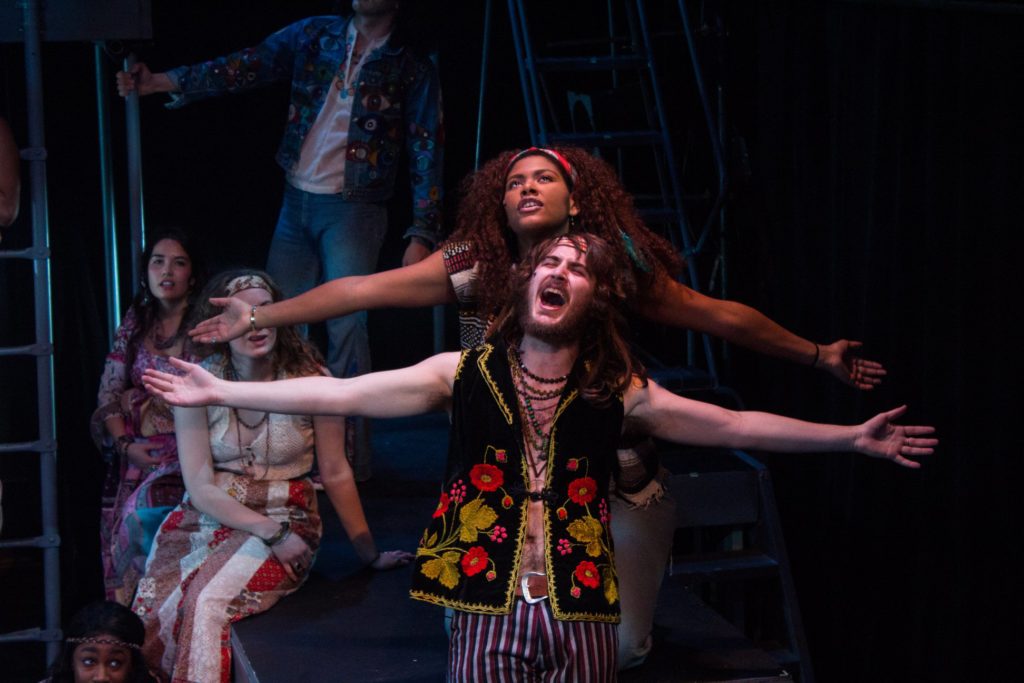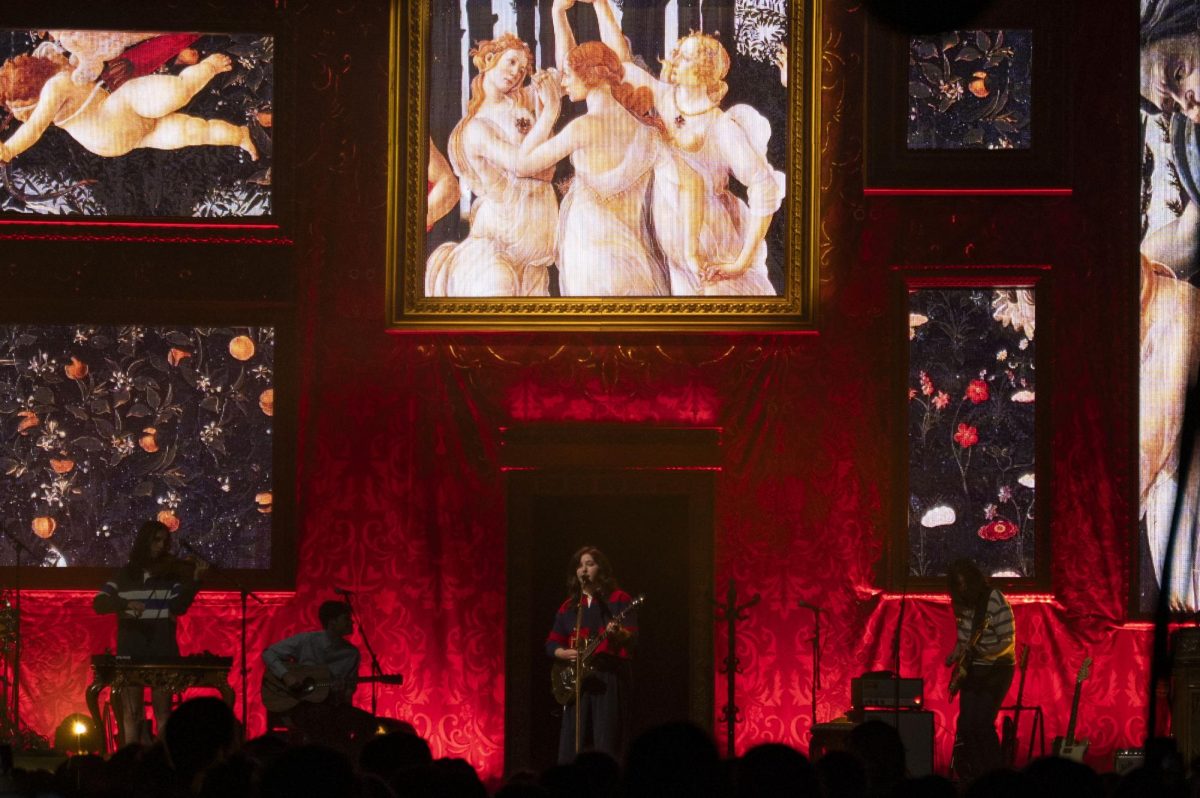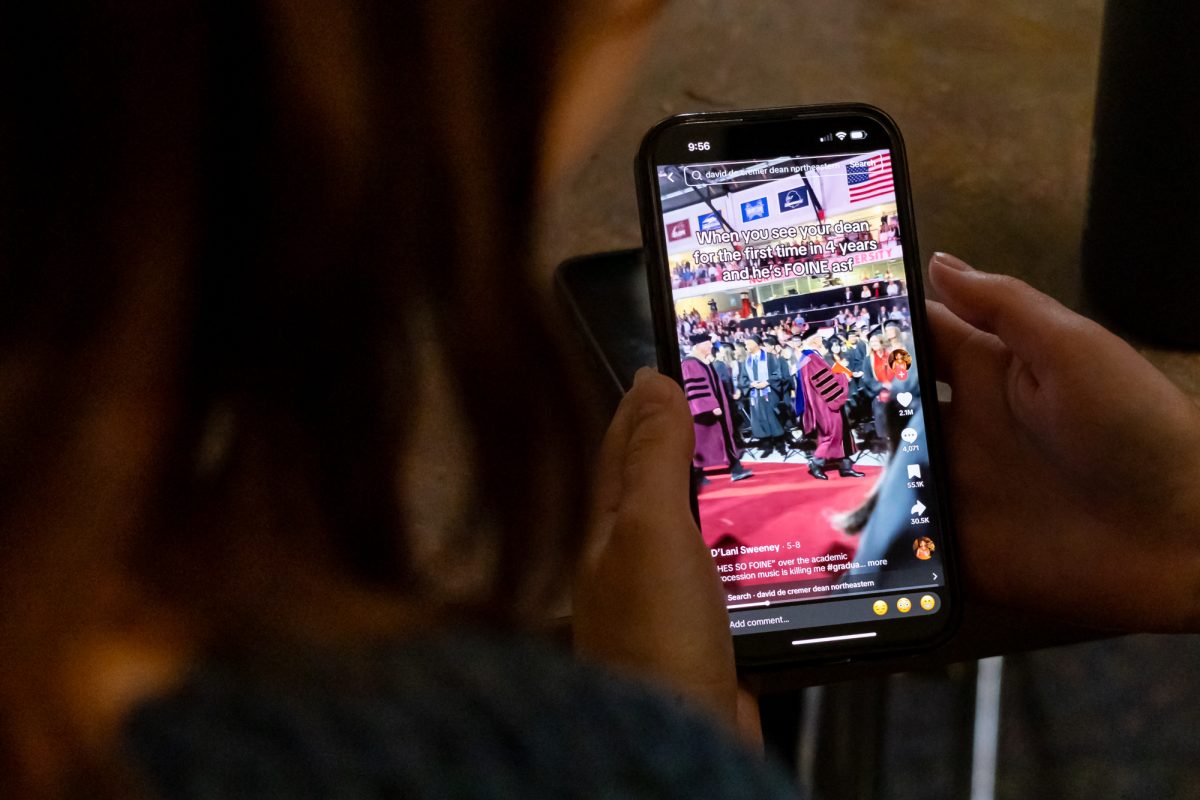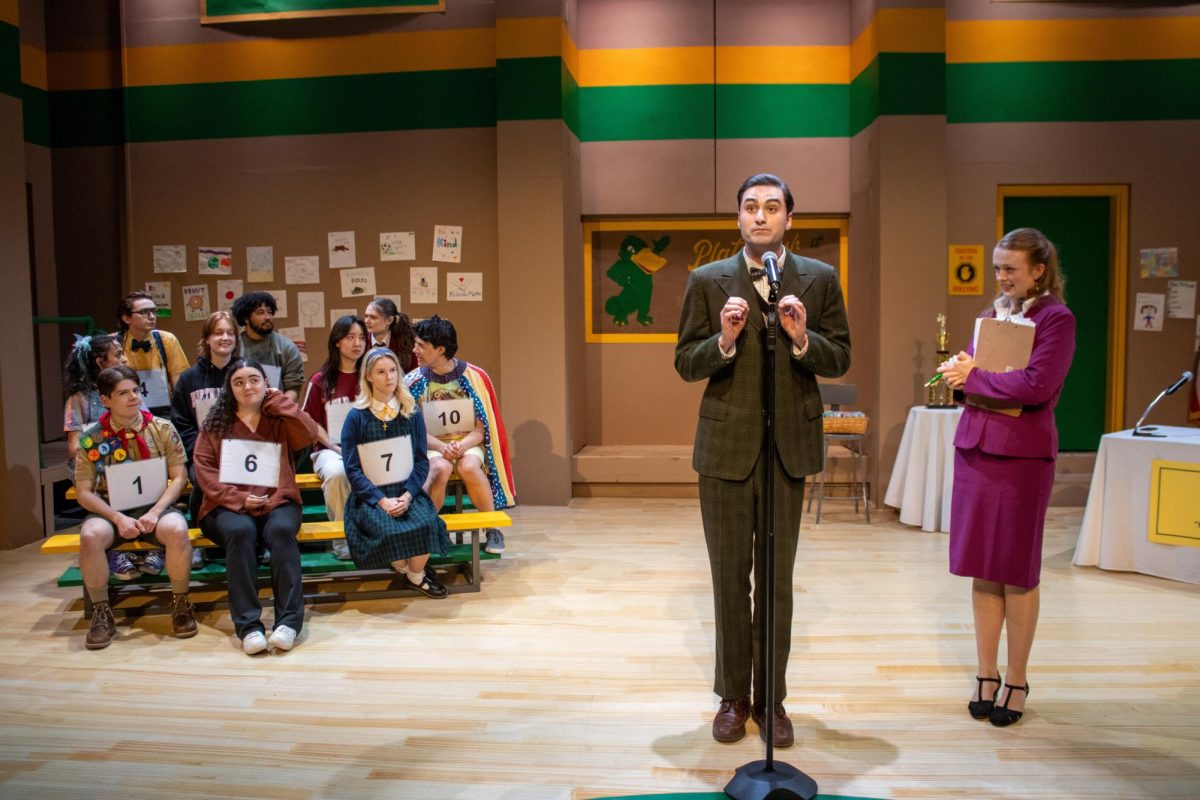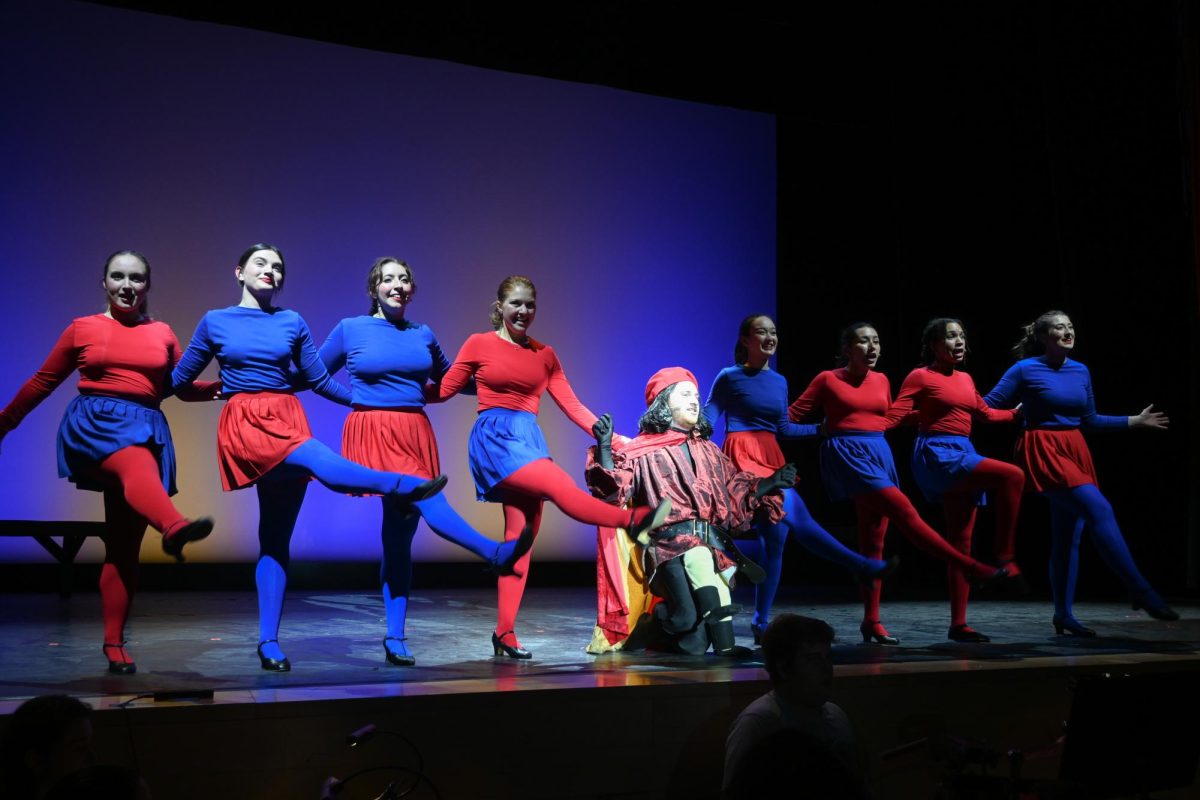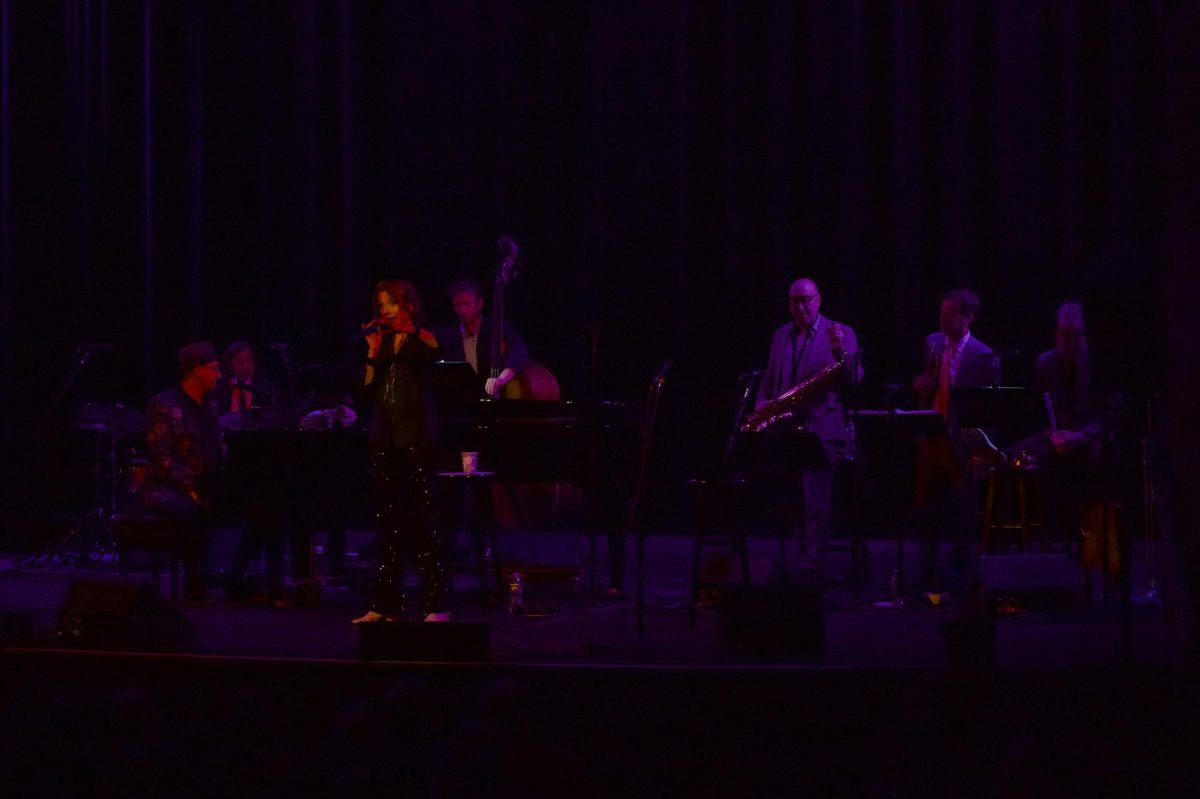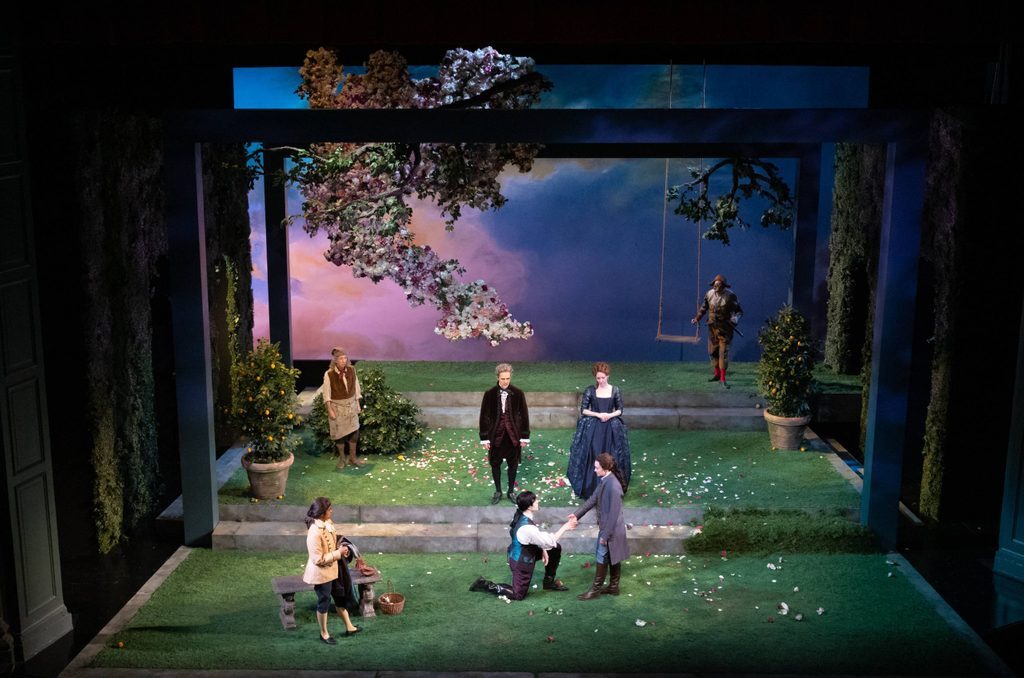By Shaina Richards, business manager
Captivating the audience with brazen head-banging and bold protests against the Vietnam War, the theatre department’s musical performance of “Hair” fully captured the spirit of the 1960s hippie movement while drawing parallels to today’s political climate.
“Hair” ran from March 22 through April 1 at the Studio Theatre in the Curry Student Center. Tickets were sold out before the show even opened, with around 30 people on the waitlist for most shows, according to director Janet Bobcean.
“That’s how you know people need this show,” said Christina Chen, a fourth-year theatre major who gave a fierce voice to the character of Jeanie. “At this time, people need to go to theatre and be reminded that we are in this together.”
A disclaimer of nudity, adult language and unabashed freedom of expression, along with a condemnation of racial stereotypes sets a serious tone for the first scene.
Anthony Rodriguez brilliantly captures the naive, innocent character of Claude, who desires to truly live and do something with his life instead of being just another number drafted into the war.
“There’s this song where he [Claude] says he’s from Manchester, England — but that’s not who he is, it’s him trying to find out who he is,” said Rodriguez, a fourth-year psychology major with a minor in theatre. “Deep down, he wants to be a part of this loving community, but is also faced with pressures from his parents and society to go to war, and his judgment is easily corrupted.”
Irreversibly entranced by the emotion fueling every word and movement, complemented by their authentic hippie garb and hand-painted protest signs, the audience experience became one with the tribe experience. Flailing arms and flying hair demonstrate self-expression in dance numbers accompanied by lyrics about cannabis and other taboo topics.
Throughout the performance, the tribe would stare directly into the eyes of audience members while singing or chanting, their eyes burning with anger and bodies trembling with passion at times, making it impossible to look away.
“You can tell the audience is rooting for us and not the parents,” Chen said.
Absolute freedom of self in the tribe is expressed in one dimly lit, hazy scene in which members shed their clothes.
“This sexual scene really symbolizes what these people stand for, which is freedom. Not only sexual freedom, but being comfortable with who you are,” said Lera Bamgbala, a third-year history major who played Dionne. Dionne is a character who acts as the voice for tribe members who are people of color.
Even in moments when tribe members aren’t in the spotlight, there is a strong sense of love that the tribe has for each other. Intimate moments are communicated through gazes, leaning on one another while listening to or cheering on Claude or laughing at the goofy, overtly sexual Berger. Berger, the spirited, hot-blooded leader of the tribe, is played by Adam Thomas, a fifth-year physical therapy major.
“He created this community where people can live in a dream state — where they can be better versions of themselves,” Thomas said.
But when Sheila, a compelling political activist in the group, tries to have a real relationship with Berger or when Claude gets his draft card, reality inevitably breaks through their illusory state.
“Historically, ‘Hair’ has been a show that was meant to break boundaries, going back and forth between flashbacks, reality and drug trips,” said Arielle Greenspan, a first-year theatre and communication studies combined major who attended a March 31 performance. “At some points, it was hard to tell which was which, but I found that really engaging.”
Rodriguez compared “Hair” to how people today may choose to engage or disengage in political discourse.
“It’s hard to think about how dark the world is,” Rodriguez said. “All this technology and clutter can distract us from the reality of the world and make us stay passive.”
In the end, Claude’s inability to make a decision results in his destruction.
“He is every one of us,” Bamgbala said. “It’s not that he wanted to be passive, but we fear consequences that seem so big in our head, we don’t consider long-term consequences that could be worse.”
Echoes of a misogynistic culture that existed during the 1960s are still present in interactions between female leads Jeanie and Sheila and male leads Claude and Berger.
“It definitely is a male-driven show, but Janet [Bobcean] allowed us to dive deep into bringing depth to the female roles,” said Zoe Unverferth, a third-year communication studies and theatre combined major who played Sheila. “Sheila’s [role], I realized, is to bring the tribe together and try not to stay entirely in the dream world but remember why we are hippies, and what traditions we are trying to question to build the society we want to live in.”
Throughout the play, the cast’s handmade protest signs accompanied impassioned chants from tribe members. Displayed along the back wall and sides of the set, the signs featured messages from the era, such as “Make Art Not War,” and modern movements including Black Lives Matter and Never Again.
“For curtain call, we brought out contemporary signs, to bring home that we still have issues with racism, environmental degradation and abuse,” said Bobcean, who has been a Northeastern associate professor in theatre for 34 years.
“During the last song, ‘Let the Sunshine In,’ you see that even though Claude is gone, even though they’re angry and upset, it’s fuel to push them further,” Bamgbala said. “Yes they take drugs, yes they’re insane, but they have things to say — and they’re not going to stop until the world starts to listen.”


